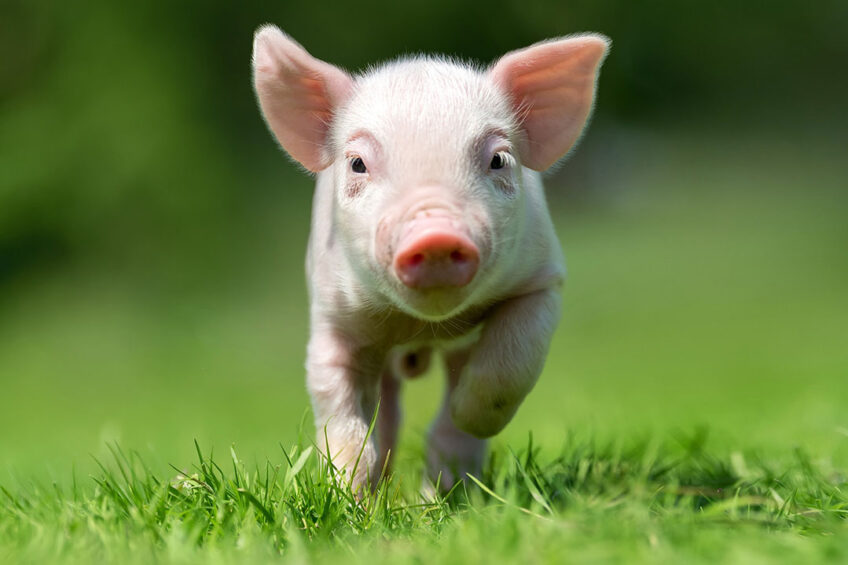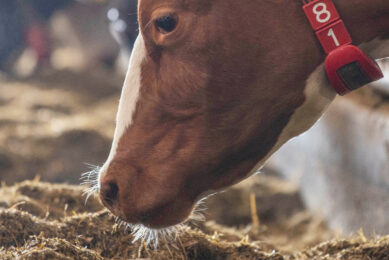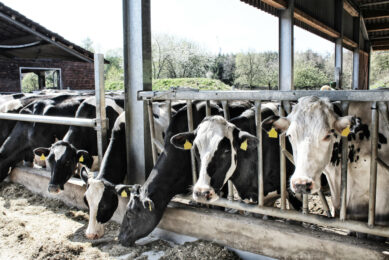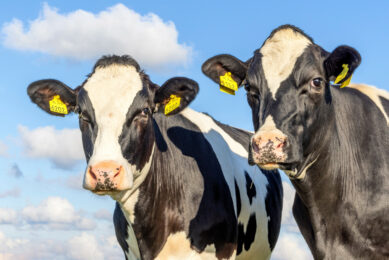Gut health improving bioactive proteins in spray-dried plasma

To reduce antibiotic use in animals, managing gut health is instrumental. As bioactive proteins in spray-dried plasma have a positive effect on gut health in young animals and reduce diarrhoea, the use of SDPP should be considered when working on improving gut health.
Reducing antimicrobial use is a worldwide challenge for farmed animals. In all parts of the world, large efforts are being made to reduce the use. Where antibiotics are easy to use, and effective, good stockmanship and animal care is needed to limit the use of antibiotics and to only use it prudently. All aspects of animal management must be carefully taken into consideration. Feeding, housing, health management and biosecurity, all of these have to be controlled. Intestinal problems and the consequences of poor gut health on the total health can be important causes of poor performance. Feeding management is critical to support the gut health, and with that decrease the use of antibiotics. Gut health management in young animals encompasses restricting protein contents, providing proteins with good digestibility, feeding fibres and a correct balance of nutrients. This article delves into how spray-dried plasma powder (SDPP) can contribute to a better gut health, and therewith to the reduction of antimicrobial use.

What is spray-dried plasma?
Spray-dried plasma is a highly digestible and palatable ingredient for young animal feed. The natural source is fresh blood of healthy slaughtered pig or cattle. The blood is treated with sophisticated methods in dedicated plants to guarantee its safety for use in young animals. SDPP contains all the plasma proteins of blood, whose functionality is conserved by the spray-drying process applied. The very short heating during spray-drying guarantees the inactivation of micro-organisms on the one hand and the preservation of the functional protein on the other hand.
Effects of SDPP
Weaned piglets that are fed diets containing SDPP show performance improvement, according to many studies during the last 3 decades. In general, an improvement in feed intake and weight gain is observed in weaned piglets. In chickens the improvement of feed efficiency dominates. Other studies proved that SDPP is an alternative for preventive use of antibiotics. In a recent trial examined whether a high dose of zinc could be replaced by plasma. ZnO is a frequently used additive to prevent weaning diarrhoea and improve performance. The study confirmed that, especially with higher and continued inclusion of SDPP, similar performance results for feed intake and growth could be achieved compared to the groups were zinc was included in the diet.
Besides improved performance and less diarrhoea, there is a down regulation of pro-inflammatory and an up-regulation of anti-inflammatory cytokines. In vitro studies on pig enterocytes showed differential gene up-regulation of tight junction proteins and anti-inflammatory cytokine pathways.

Improving gut health in young animals
SDPP encompasses different characteristics that are helpful for the gut health, and that are interrelated. It is hard to define exactly what the relative importance of these factors are.
- First: piglets like the taste of plasma, which links to the higher intake in the feeding dip after weaning. Whereas, starvation has a negative effect on gut health, feed intake stimulates the development of the gut wall.
- Second: the digestibility of plasma is high, which is in line with the better growth in piglets and young chickens, that have an immature digestive system at a time where plasma is giving its positive effect. When the plasma is easily absorbed it nourishes the enterocytes and improves the integrity of the gut wall.
- Third: the immunoglobulin G fraction (IgG) of plasma is responsible for the enhanced pig performance that occurs when spray-dried plasma is fed. IgG specifically binds bacteria and viruses. It prevents these bacteria colonising the gut and infecting the animal. The immunoglobulin G fraction of plasma seems to stimulate equal or better growth performance than whole plasma, and the early responses seem to be more consistently maintained into later post-weaning periods. Because SDPP contains specific antibodies, SDPP reduces post-weaning diarrhoea. These antibodies prevent the attachment to and infection of the gut wall. Excretion of the pathogenic bacteria and transmission to neighbouring pigs decreases.
- Forth: plasma contains many bio-active proteins, besides immunoglobulin G that play a significant role in immune modulation and communication. It is likely that these proteins exert an effect on the gut wall too.
Systemic health effects
SDPP has an outstanding record of improving performance in young piglets. Studies show that weaned piglets have the same performance when zinc or antibiotics are replaced by spray dried plasma. The SDPP makes young animals more robust against the negative effects of a bacterial infection. The immunoglobulins prevent that ingested pathogens can colonise or infect the animals and disturb the gut microbiota. Besides the local gut effect, data from some studies suggest that there are also systemic health effects. It is has been observed that SDPP fed piglets had a stronger protection after vaccination against respiratory diseases compared to non-SDPP fed piglets. That gut health affects the overall health and health of other organ systems is understandable, because the gut is the biggest organ in the body and there is communication of immune system of the different organs.
The use of spray-dried plasma is legally allowed in almost all parts of the world, including the EU. Decreasing antibiotic use, a low carbon footprint of processed by-products, and circularity of agro-systems are additional reasons to use these proteins. Critical or transition periods in juvenile live happen in all farmed animals. The evidence that SDPP has an effect in poultry and fish, is also increasing. Young chicks grow faster and less mortality is seen in shrimp with feeds containing SDPP. Also in poultry and aquatic animals antibiotics are used in juveniles to overcome the challenges at the critical transitional stages of life. SDPP can help in these groups of animals to decrease the need for antimicrobials, like it does in pigs.
Author:
Lourens Heres and Carine van Vuure, Darling Feed Ingredients
Join 13,000+ subscribers
Subscribe to our newsletter to stay updated about all the need-to-know content in the dairy sector, two times a week.






